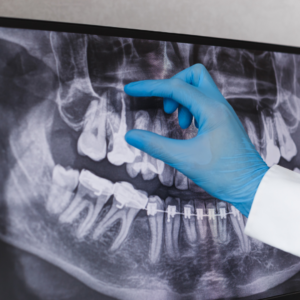Dental implants have revolutionized the field of dentistry, providing patients with a reliable and long-lasting solution for missing teeth. However, despite their high success rate, dental implant failures can occur. Understanding the reasons behind these failures and exploring effective preventive measures is crucial for ensuring successful implant outcomes. In this article, we will delve into the common causes of dental implant failures and discuss how Dr. Alfred Penhaskashi, a skilled periodontist in Encino, California, utilizes his expertise and the latest techniques to prevent and save failing implants.
Causes of Dental Implant Failure
Though revolutionary to the world of dentistry, dental implants are not always perfect and, unfortunately, do fail on occasion.Dental implant failures can be attributed to various factors, including:
a) Peri-Implantitis: This is a major cause of implant failure and occurs when the tissues surrounding the implant become inflamed and infected. Poor oral hygiene, smoking, and certain medical conditions can increase the risk of peri-implantitis.
b) Implant Overloading: Placing excessive force on an implant, especially during the healing process, can hinder proper osseointegration—the bonding of the implant with the jawbone. This can lead to implant failure.
c) Inadequate Bone Quality and Quantity: Sufficient bone density and volume are vital for successful implant placement. If the jawbone lacks the necessary support, implants may not integrate properly, resulting in failure.
d) Surgical Complications: Errors during the implant surgery, such as damage to surrounding structures or improper implant positioning, can compromise the success of the procedure.
Dr. Alfred Penhaskashi’s Expertise in Saving Implants
Dr. Alfred Penhaskashi, an expert in implant dentistry and a renowned periodontist in Encino, California, possesses extensive knowledge and experience in implant dentistry. His expertise enables him to tackle implant failures effectively and provide successful treatment options.
a) Comprehensive Evaluation: Dr. Penhaskashi conducts a thorough examination of the patient’s oral health, assessing bone quality, gum health, and overall implant stability. This evaluation helps him identify potential risk factors and develop personalized treatment plans.
b) Advanced Diagnostic Tools: Dr. Penhaskashi employs state-of-the-art diagnostic tools, such as 3D cone beam computed tomography (CBCT) imaging, to obtain detailed views of the oral structures. This allows him to accurately diagnose any issues and plan appropriate interventions.
c) Laser-Assisted Therapy: Laser technology is employed by Dr. Penhaskashi to address peri-implantitis. Laser-assisted therapy is minimally invasive and effectively eliminates bacteria while promoting tissue healing, resulting in improved implant stability.
d) Guided Bone Regeneration: In cases of inadequate bone quantity or quality, Dr. Penhaskashi utilizes advanced techniques like guided bone regeneration. This involves placing bone grafts or membranes to stimulate bone growth, enhancing the success of implant placement.
Preventive Measures to Avoid Dental Implant Failure
While saving dental implants once they fail is paramount to oral health longevity, the best way to save implants is to prevent them from failing in the first place. Dr. Alfred Penhaskashi emphasizes the importance of preventive strategies to minimize the risk of implant failures. Some key preventive measures include:
a) Thorough Patient Education: Dr. Penhaskashi educates his patients about the significance of oral hygiene practices and regular dental check-ups. This empowers them to maintain optimal oral health and prevent complications.
b) Treatment Planning and Implant Placement: Careful treatment planning, precise implant positioning, and a thorough understanding of the patient’s unique needs contribute to successful implant outcomes.
c) Maintenance and Follow-up: Regular follow-up visits allow Dr. Penhaskashi to monitor the implant’s stability and intervene promptly if any issues arise. Professional cleanings and check-ups help maintain oral health and prevent peri-implantitis.
Our team is poised and ready to get provide you with the long-term results you deserve and to help you avoid dental implant failure events. To schedule your dental implant consultation or to discuss a failing implant issue with Dr. P, contact us today!